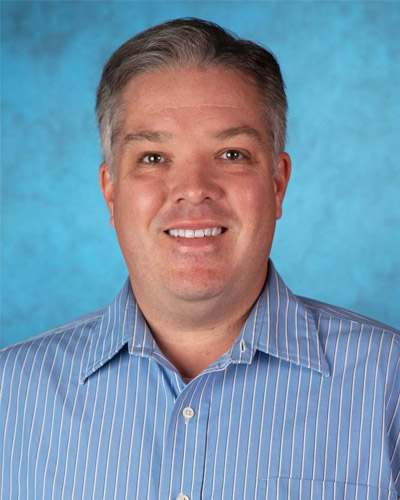
The Ewing Halsell Distinguished Chair in Biology
Brian Hermann, PhD
The Ewing Halsell Distinguished Chair in Biology
Professor, Neuroscience, Developmental and Regenerative Biology
Graduate Advisor of Record, Developmental and Regenerative Sciences PhD Program
Founder, UT San Antonio Genomics Core
Brian Hermann’s areas of expertise include reproductive biology, stem cell biology, male infertility and fertility preservation, single-cell and spatial gene expression, and spermatogonial stem cells.
He is the principal investigator of the Hermann Lab, where he and his students and postdocs conduct research on the fundamental biology of normal male germline development, including formation and maintenance of spermatogonial stem cells using various animal models and human tissues. They are trying to understand how stem cells might be used to treat male infertility by regenerating spermatogenesis and promote animal transgenesis in nonhuman primates. More recently, his group has been investigating how male germ cells enter meiosis and are leveraging this knowledge to develop a new male contraceptive that targets a protein involved in this process.
Hermann has a sustained record of high-impact research, with an h-index of 28 and over 3700 citations to date. He has coauthored multiple book chapters and published dozens of peer-reviewed articles in top journals such as Cell Reports, Cell Stem Cell, Nature Communications, Development and Fertility & Sterility.
In addition, he has secured over $25 million in federal funding from the National Institutes of Health and the National Science Foundation. He was also a recipient of a Fulbright U.S. Scholar Award in 2022.
Hermann’s research has earned several awards, including the Matthew P. Hardy Young Andrologist Award from the American Society of Andrology in 2022, the UT San Antonio President’s Award for Research Achievement in 2024, and several research achievement awards within his department.
Hermann earned his PhD in Molecular and Integrative Physiology from the University of Kansas and performed postdoctoral training at the Magee-Womens Research Institute, University of Pittsburgh.